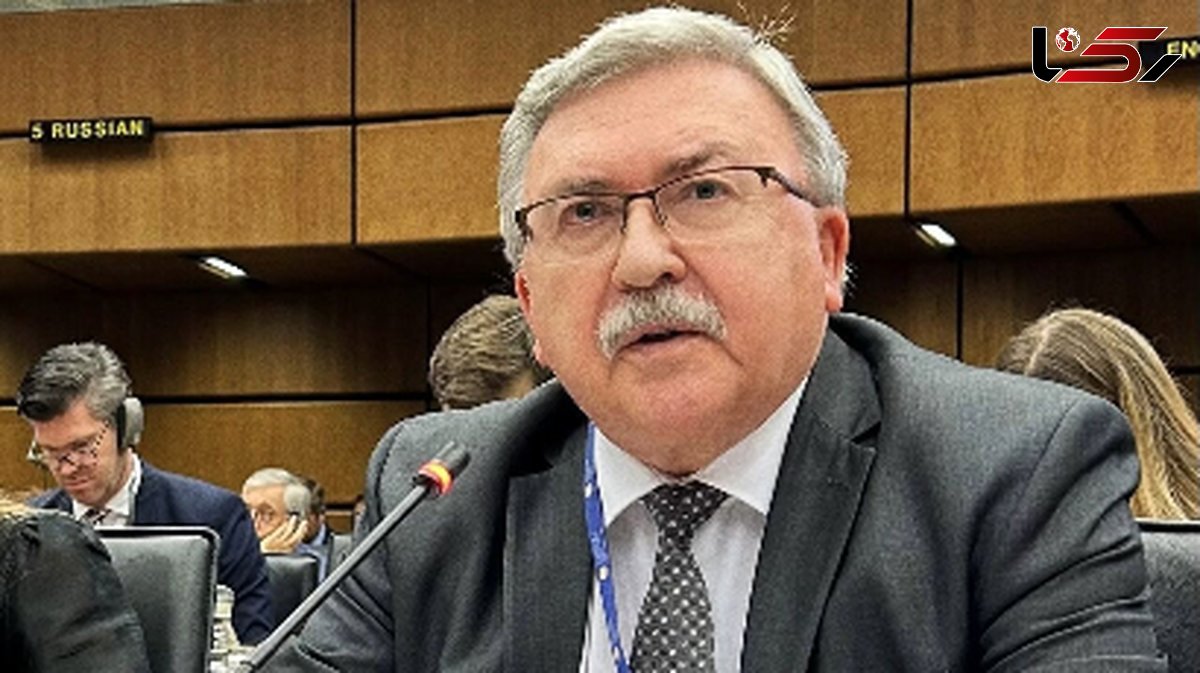Why Olyanov Believes the Snapback Mechanism Nullifies the Cairo Agreement
Rokna Political Desk – Russia’s permanent representative to international organizations in Vienna, Mikhail Ulyanov, emphasized that the activation of the snapback mechanism by three European states participating in the JCPOA constitutes an illegal and destructive action that could overshadow all recent achievements by Iran and the International Atomic Energy Agency (IAEA).

According to Rokna, Ulyanov made these remarks on Thursday during a side event at the 69th IAEA General Conference, organized by the Islamic Republic of Iran with the participation of ambassadors from China, Pakistan, South Africa, and Venezuela. He stated: “In recent years, we have witnessed that military attacks on nuclear facilities have become a new norm. Russia experienced this during the Ukraine conflict; since March 2022, the Zaporizhzhia nuclear power plant has been regularly targeted by drone and, occasionally, artillery attacks by Ukrainian armed forces. While most of these attacks targeted the surrounding areas of the plant and the city of Enerhodar, some also affected the plant itself. The Kursk and Smolensk nuclear facilities were also targeted by Ukrainian forces.”
He continued: “However, what occurred in Iran in June 2025 was unprecedented. Israel and the United States carried out deliberate, premeditated attacks on nuclear facilities under IAEA safeguards with the declared intent of destroying them entirely. The perpetrators openly claim such a right and, if necessary, will conduct similar operations again.”
Ulyanov underscored: “This aggression is a blatant violation of international law, the UN Charter, the IAEA Statute, and constitutes a blow to international security and the non-proliferation regime, whose cornerstone is the NPT.”
Discussing the implications for the IAEA, he said: “Most of the damaged targets were uranium enrichment facilities in Fordow and Natanz, the centrifuge manufacturing plant in Isfahan, and the heavy water research reactor in Arak, all of which were under continuous IAEA oversight with regular inspections and verification measures. These facilities were also part of the JCPOA. The IAEA had never raised any questions regarding diversion of nuclear material in these facilities. Furthermore, prior to the U.S. and Israeli attacks, Iran was considered the most verifiable member of the Agency, with 493 inspections conducted at Iranian nuclear sites in 2024 alone.”
He added: “As a result of these attacks, monitoring in Iran effectively ceased. Therefore, the actions of Israel and the United States dealt the most significant blow to the IAEA safeguards system. These countries undermined the Agency and weakened its statutory mandate. Without the Agency’s presence on site, the international community cannot have a clear picture of Iran’s nuclear program.”
Ulyanov further highlighted: “We have repeatedly warned about the consequences of reckless actions by certain Board of Governors members, who advance resolutions motivated by political considerations and compel the Secretariat to produce unnecessary reports on Iran. We reminded the Secretariat to exercise caution and avoid ambiguous or fabricated conclusions. Unfortunately, our warning tragically materialized: the May 31 Director General’s report, providing a comprehensive assessment of Iran’s nuclear program, initially created a conducive environment for a political and provocative resolution by the three European countries and the U.S. on June 12, and subsequently enabled Israel to justify its attacks on Iran’s nuclear facilities.”
The Russian envoy continued: “Another factor in these developments is the European position. Over the past three years, we repeatedly heard that, regarding the Ukraine war, nuclear facilities should never be targeted. However, when attacks on Iran’s nuclear facilities occurred, Europeans completely ignored this principle. Does this mean they no longer believe that attacks on nuclear facilities are unacceptable and now consider them permissible? Such blatant double standards are extremely dangerous and pave the way for normalizing attacks on nuclear facilities as part of military strategy – an approach that could have catastrophic consequences for all humanity.”
Ulyanov emphasized: “The United States openly seeks to reserve this right for itself. As stated in an unofficial document distributed at the IAEA General Conference, the IAEA Statute does not prohibit attacks on nuclear facilities. This is a clear signal that the U.S. considers further attacks on nuclear facilities acceptable, not only in Iran but anywhere in the world deemed necessary. We finally witnessed in practice what the U.S.-claimed rule-based order truly means.”
Welcoming the Cairo Agreement between Iran and the IAEA, he said: “Both parties, particularly Iran, demonstrated a responsible and professional approach. They affirmed their willingness for constructive cooperation and respect for each other’s principles and concerns. Naturally, following the recent attacks, Iran’s security interests must take priority. We warn Western countries to refrain from any interference in implementing the Cairo agreements. Iran and the Agency must be given the opportunity to build trust and work in a cooperative environment.”
Regarding the snapback mechanism, the Russian representative stressed: “The European troika must halt the illegal and political process of the snapback in New York. The activation of the snapback mechanism was illegal, political, and destructive, and alone can nullify all recent efforts by the IAEA and Iran.”
He concluded: “The draft resolution prohibiting all forms of attack or threats against nuclear facilities under IAEA safeguards, submitted by Iran, Belarus, China, Nicaragua, Russia, and Venezuela, will be put to a vote today. We hope responsible and wise countries have the political courage to support this document. It is the collective duty of the Agency to, for the first time since June, state its position clearly and unequivocally – a position that should have been taken long ago: attacks on nuclear facilities under IAEA safeguards must never occur and are absolutely unacceptable.”
Send Comments